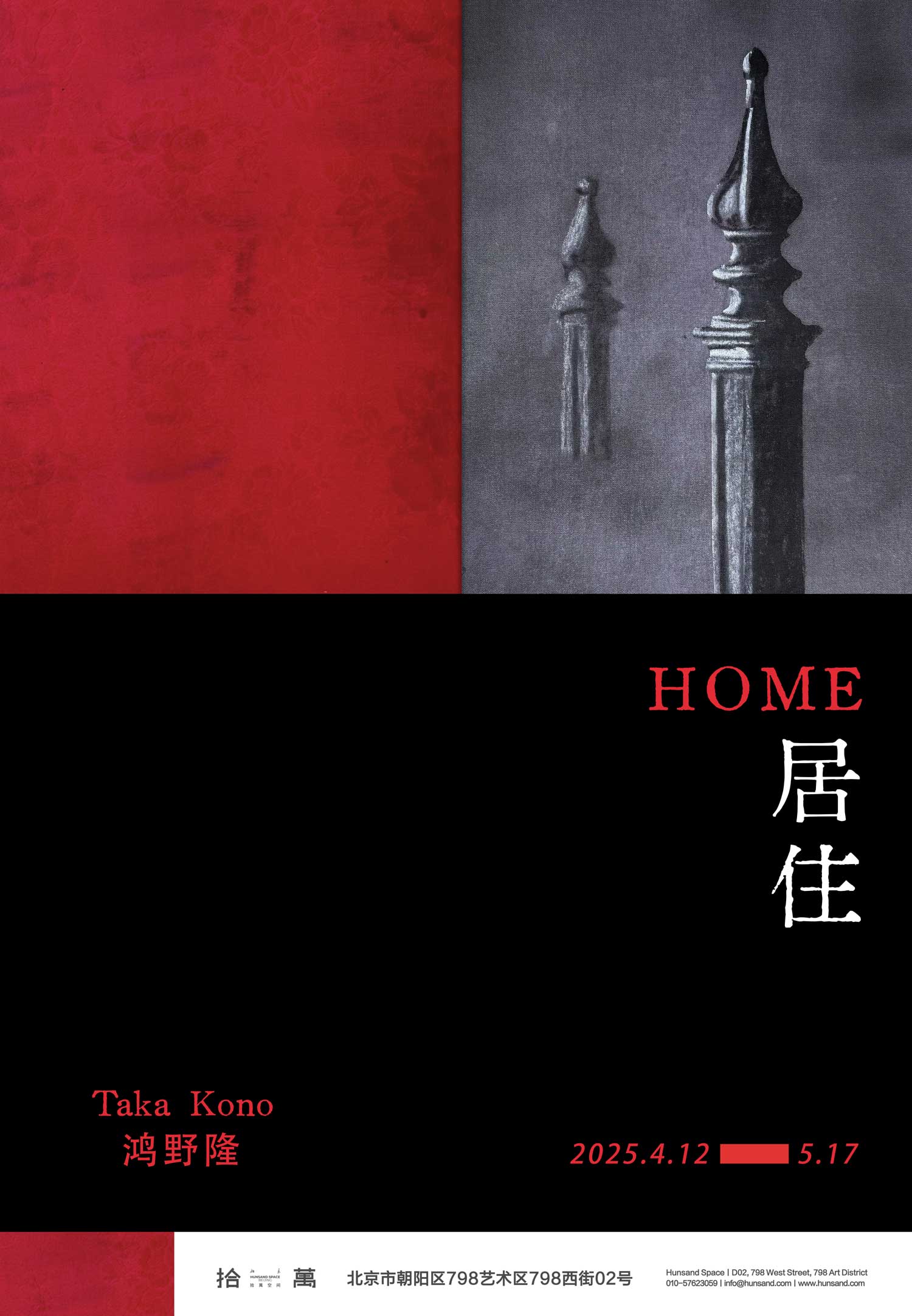Hunsand Space (Beijing) is pleased to present HOME, a solo exhibition by Taka Kono (鸿野隆), opening on April 12, 2025, in its first-floor space. Following his 2023 solo show at Hunsand Space (Hangzhou), this marks Kono’s first project-based solo presentation in Beijing. The exhibition continues his ongoing exploration into the intersection of horror atmospheres and intimate relations, probing how these emotional states blur, collapse, or intensify within contemporary visual culture.
In thisexhibition, Kono focuses more narrowly on home as a psychological and aesthetic site—both sanctuary and simulacrum. He interrogates the fragile boundary between private solace and public detachment, revealing how domestic signifiers, once imbued with warmth and familiarity, dissolve into hollow emblems in transient, impersonal spaces. The rose recurs as a central motif—not a romantic gesture, but a visual cliché worn down by overuse. Like a child’s coloring book scribble, its garishness has dulled with repetition, and its presence begins to echo the bland, depersonalized interiors it inhabits—hotel rooms, waiting areas, generic décor. These are spaces where intimacy was once promised, but where emotional resonance now feels irretrievably lost.
Kono fragments and reconfigures intimate symbols—roses, musical notations, the word ‘HOME’—through overprinting, layering, and dislocation. One installation splits the word ‘home’ across two mismatched frames, mimicking the low-budget diptychs often found in roadside motels. The warmth they gesture toward is fractured, artificial—never quite whole. Transferred patterns on fabric resemble the ghostly remains of wallpaper peeled from forgotten rooms. Floral motifs and music notes cling to surfaces like residual traces of erased memories—personal remnants that haunt the collision between the private and the public.
Here, the rose becomes a volatile symbol—a critique of intimacy as mass-produced image, repackaged sentiment, or commodified comfort. In these works, it is stripped of sensuality and beauty, becoming instead a placeholder for failure: the failure of closeness in spaces sterilized by design. Much like the jacquard bed linens that physically hold many of the pieces, the rose offers a tactile familiarity that masks an emotional void beneath. It is flattened, ornamental, emptied—a mirror of the fleeting, consumable environments it occupies.
Kono’s visual language navigates a liminal zone whereprivate moments are performed in public, and public environments simulate intimacy. Occupants share physical proximity but leave no trace, as though watching strangers record themselves in a performance meant only for their screens. Symbols such as roses, notes, and the word ‘home’ are expected to console—but here, their repetition and displacement produce unease. They highlight the uncanny familiarity of such spaces, where every gesture toward intimacy feels choreographed, its hollowness seeping through the surface.
InHOME, intimacy is not lived—it is performed, witnessed, and archived. The viewer is positioned awkwardly within this spectacle, where personal memory collapses into decorative aesthetic, and the promise of closeness fractures beneath a carefully curated façade.

